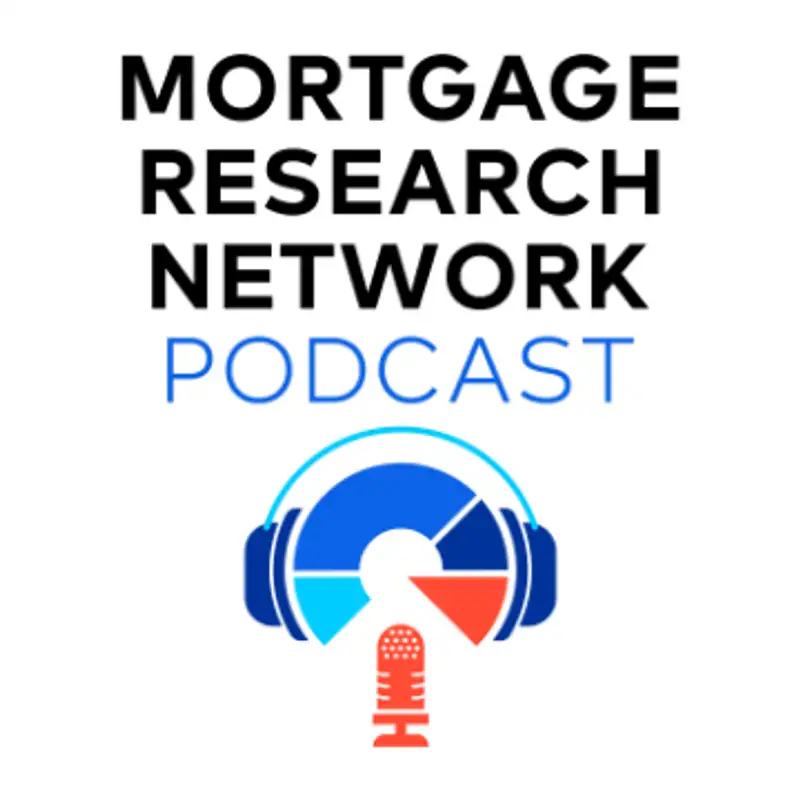The One Big Beautiful Bill: What It Means for Homebuyers
Welcome to the Mortgage Research Network Podcast. Just a note that this podcast audio is AI-generated, but the article on which it's based was produced by people. Content is also reviewed for accuracy. And your hosts, Tim and Craig, are real people. Without further ado, let's get into today's topic.
Hey everyone, thanks for listening. I'm your host, Tim Lucas, editor of MortgageResearch.com and a former mortgage professional, and with me is Craig Berry, a mortgage originator with 25 years experience.
Hi everyone.
Today we're chatting about the One Big Beautiful Bill Act. This 1,000 page bill became law on July 4. There's a lot in it, but I think what our audience wants to know is how it affects homeowners and homebuyers.
What's your overall take so far?
In a nutshell, I don't think there's anything earth shattering in here related to housing. When I say earth shattering, I mean something like a massive first time buyer grant or tax credit. We'll talk about the absence of that in a bit. But I would say the bill maintains some existing benefits for homeowners. This may not sound like a big deal, but a lot of homeownership benefits could have expired eventually without the bill.
So, what are some examples?
Well, let's dive into what I think is an important one. The mortgage insurance deduction is now permanent. That means that those who itemize deductions on their taxes can continue to add mortgage insurance to their list of deductions. That could be a decent tax savings for some homeowners.
Hmm... and this affects pretty much everyone with an FHA loan or conventional loan with PMI, right?
Well, yes, but the deductions are subject to income limits, so people should check with their tax advisors on anything mentioned here. But overall, the bill kept one of the biggest deductions people have lately with interest rates as high as they are. It maintained the mortgage interest deduction cap at $750,000.
Ok, so qualifying homeowners can write off interest paid on that much, as long as the loan was used to acquire their primary residence, right?
That's correct.
So what about that salt deduction increase? That's the state and local tax deduction, which includes property taxes. That was increased from $10,000 to $40,000, which seems HUGE.
Yep. If you're in places like California or New York, where property taxes can be a big expense, this is like finding money in your couch cushions. But there's a catch. it phases out for households making over $500,000, and it's gone by 2029.
That sunset provision could create some interesting market dynamics as we get closer to the end of the decade.
You know what really stuck out to me about this bill? There are no first-time buyer grants or tax credits. Over the years, there have been hopes for federal down payment assistance grants for first-time and first-generation homebuyers. Some have wished for amounts up to $25,000. But none of these wishes came true, at least not with this new legislation. While that may seem disappointing, it's probably not the best solution for housing anyway. It might just juice demand and prices more, while not doing much to reduce monthly payments. A huge nationwide grant could leave new homebuyers further away from homeownership than they are now.
As disappointed as people are, maybe it's for the best. Any final thoughts on the bill?
Look, while this bill provides some stability for current homeowners, anyone looking to enter the market needs to get creative. Research those local programs. Remember, the harder they are to find, the better your chances of getting that assistance since you're one of the few who are willing to track it down.
That's great advice. Anyone can find hay in a haystack. You got to start finding needles.
That's a great way to put it. Well, that's about all the time we have for this topic, but we go into even more detail on the site. To learn more, go to Mortgage research.com and type big beautiful bill in the search bar at the top of the homepage. We'll see you next time on the Mortgage Research Network Podcast.
